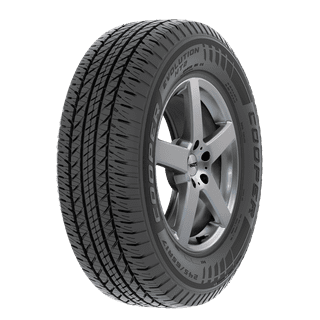Discover Top-Quality Tires Morris IL: Select the Best for Your Car
Discover Top-Quality Tires Morris IL: Select the Best for Your Car
Blog Article
Tire Solution: Understanding Tire Pressure Monitoring Equipments
Recognizing Tire Stress Surveillance Equipments (TPMS) is an essential facet of maintaining optimal automobile performance and security on the road. With developments in automobile modern technology, TPMS has actually become a typical attribute in contemporary lorries, giving real-time details on tire pressure degrees. Delving deeper into the complexities of TPMS, one can discover the various elements that compose this system and the significance of each in making sure precise tracking. From straight to indirect TPMS systems, the landscape of tire stress monitoring is varied, each with its unique set of benefits and considerations. Stay tuned to unwind the complexities of TPMS, from maintenance tips to the obvious benefits of keeping your tires properly pumped up. morris tire and alignment.

Significance of TPMS
The relevance of Tire Stress Tracking Equipments (TPMS) hinges on their ability to enhance lorry safety and security and efficiency through real-time surveillance of tire stress levels. Keeping the right tire pressure is crucial for guaranteeing optimum handling, braking, and general safety of an automobile. TPMS supplies drivers with prompt feedback on any type of underinflated or overinflated tires, enabling timely changes to be made.
Components of TPMS
Sensing units are usually located in the tire shutoff stem or affixed to the wheel assembly, where they measure tire pressure and send data to the control module. Some advanced TPMS versions likewise display the real tire pressure analyses for each tire, supplying motorists with real-time details to ensure optimal tire performance and safety. By keeping track of tire stress constantly, TPMS helps avoid crashes, minimizes tire wear, and improves fuel performance, making it an essential component for lorry security and efficiency. mopar tire service specials.
Kinds Of TPMS

On the other hand, indirect TPMS relies upon the vehicle's wheel speed sensing units to keep track of tire pressure. This system discovers underinflation by comparing the rotational rates of the wheels. Indirect TPMS is much less expensive than straight TPMS, as it uses existing sensors within the lorry.
While straight TPMS provides extra precise analyses, indirect TPMS is easier in layout and generally needs less upkeep. Both systems have their limitations and benefits, and the choice between them usually depends upon aspects such as expense, car make, and individual choice. Recognizing the distinctions in between these two kinds of TPMS can assist car proprietors make informed choices concerning tire maintenance and safety and security.
TPMS Upkeep Tips
Conduct routine checks on the tire stress degrees and contrast them with the TPMS analyses to ensure they are constant. During tire rotation or substitute, make certain that the TPMS parts are handled carefully to avoid any kind of prospective damage. If the TPMS advising light illuminates on the control panel, address the concern promptly by examining the tire pressures and the total system for any kind of mistakes.
Advantages of Correct Tire Pressure
Keeping proper tire pressure, as highlighted in TPMS Upkeep Tips, is find more info critical for reaping the numerous advantages connected with optimal tire pressure levels. One of the primary advantages of keeping the right tire stress is boosted gas performance. When tires are correctly pumped up, there is much less moving resistance, resulting in much better fuel economy. Furthermore, appropriate tire stress guarantees also tire wear, expanding the lifespan of the tires and promoting much safer driving problems. With the right tire pressure, lorries likewise have much better handling and grip, particularly in damaging weather. This can improve total driving performance and security for the chauffeur and passengers. Maintaining optimal tire pressure can add to a smoother and much more comfortable trip by minimizing vibrations and noise caused by underinflated tires. In final thought, the benefits of appropriate tire pressure go beyond simply tire longevity; they include boosted gas effectiveness, boosted safety, much better vehicle efficiency, and total driving convenience.
Conclusion
In conclusion, comprehending tire stress monitoring systems (TPMS) is crucial for check my source preserving optimal tire pressure and making sure car safety and security. By acknowledging the significance of TPMS, recognizing with its components, knowing the different types offered, sticking to appropriate upkeep ideas, and understanding the benefits of keeping correct tire stress, motorists can boost their driving experience and prolong the lifespan of their tires. Correct tire pressure is vital to efficient and secure automobile operation.

Report this page